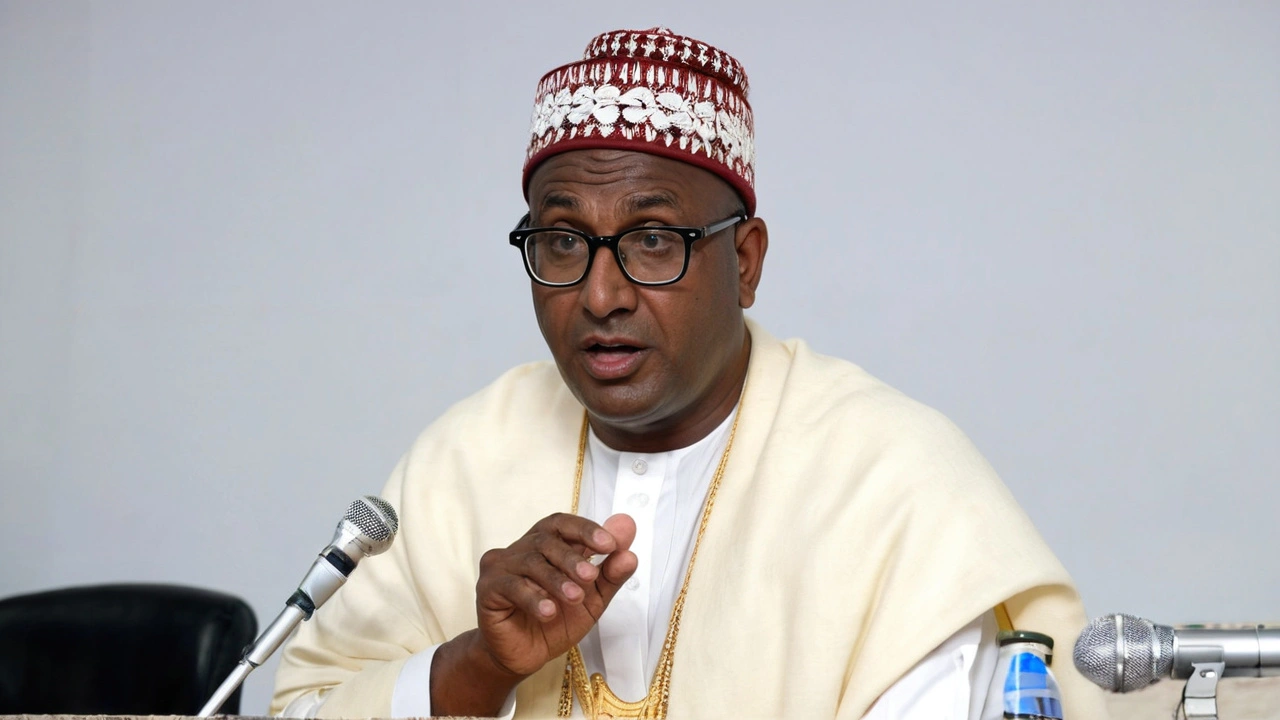Mele Kyari Addresses Accusations of Owning a Blending Plant in Malta
Mele Kyari, the Group Managing Director of the Nigerian National Petroleum Corporation (NNPC), recently found himself at the center of a controversy after being accused by Babangida Aliyu, the former Governor of Niger State, of owning a foreign bank account and a blending plant in Malta. In a public statement, Kyari vehemently denied these allegations, asserting that he has no connection to any blending plant in Malta and has never even set foot in the country.
The accusations were initially made by Babangida Aliyu, who claimed that Kyari had vested interests that compromised his role at the NNPC. These allegations come at a time when public scrutiny of government officials and demands for transparency are at an all-time high. Kyari responded quickly to these claims, labeling them as 'baseless' and asserting that they are motivated by political interests rather than any factual basis.
Transparency and Accountability in Public Service
Kyari took the opportunity to highlight his commitment to transparency and accountability, which he said are foundational principles of his tenure at the NNPC. He emphasized that the corporation has been implementing significant reforms aimed at improving operational transparency and financial accountability. The NNPC, under Kyari’s leadership, has vowed to publish its financial reports regularly, a move that has earned praise from transparency advocates.
The refuted claims have sparked a broader debate about corruption within Nigeria's public sector. Critics argue that such allegations, whether substantiated or not, undermine public trust and distract from genuine efforts to address corruption. Kyari’s adamant denial and his emphasis on an unblemished record make it clear that he wants to be seen as part of the solution rather than part of the problem.
Political Intrigues and Motives
It's important to consider the political undertones surrounding Aliyu’s allegations. In Nigerian politics, accusations of corruption are often wielded as tools to discredit rivals. Whether this particular accusation has merit or not, it certainly fits a familiar pattern. Aliyu's timing and the nature of his claims could be interpreted as an attempt to destabilize Kyari's position and influence public perception.
Mele Kyari’s response to these allegations was prompt and unequivocal. He stated that he has no connections to the purported blending plant, nor does he own a foreign bank account as alleged by the former governor. Kyari described the accusations as politically motivated and intended to tarnish his reputation.
Public Reactions and Implications
The public reaction to Kyari’s denial has been mixed. While some have hailed his transparency and swift rebuttal, others remain skeptical. The skepticism is fueled by a long history of corruption within Nigeria’s public offices. For many Nigerians, allegations of corruption, whether true or not, resonate due to past experiences with public officials.
In his statement, Kyari also called for a more discerning public discourse around such allegations. He urged the media and the public to seek verifiable facts before arriving at conclusions. This approach, he argued, would foster a culture of accountability while preventing the spread of misinformation. By addressing the issue head-on and asking for factual verification, Kyari aims to shift the narrative away from unfounded accusations towards a more evidence-based discussion.
Navigating a Controversial Landscape
For Kyari and the NNPC, the immediate task is to continue proving their commitment to transparency and accountability. Kyari’s leadership has already seen the corporation take steps toward greater openness, but sustaining these efforts in the face of persistent allegations will be crucial for maintaining public trust.
The situation also reflects the broader challenges facing Nigeria's fight against corruption. As reforms are enacted and new policies introduced, resistance from entrenched interests and political adversaries is inevitable. Kyari’s experience underscores the need for robust mechanisms that can independently verify claims and protect individuals from politically motivated attacks.
Conclusion
In conclusion, the allegations against Mele Kyari highlight the complex interplay between politics and public service in Nigeria. While Kyari has categorically denied any involvement in the alleged blending plant in Malta, the controversy underscores the importance of transparency and accountability in public office. As the debate continues, it serves as a reminder of the need for due diligence and factual accuracy in the fight against corruption. Kyari’s case will likely be a litmus test for how future allegations against public officials are handled and examined in the court of public opinion.















